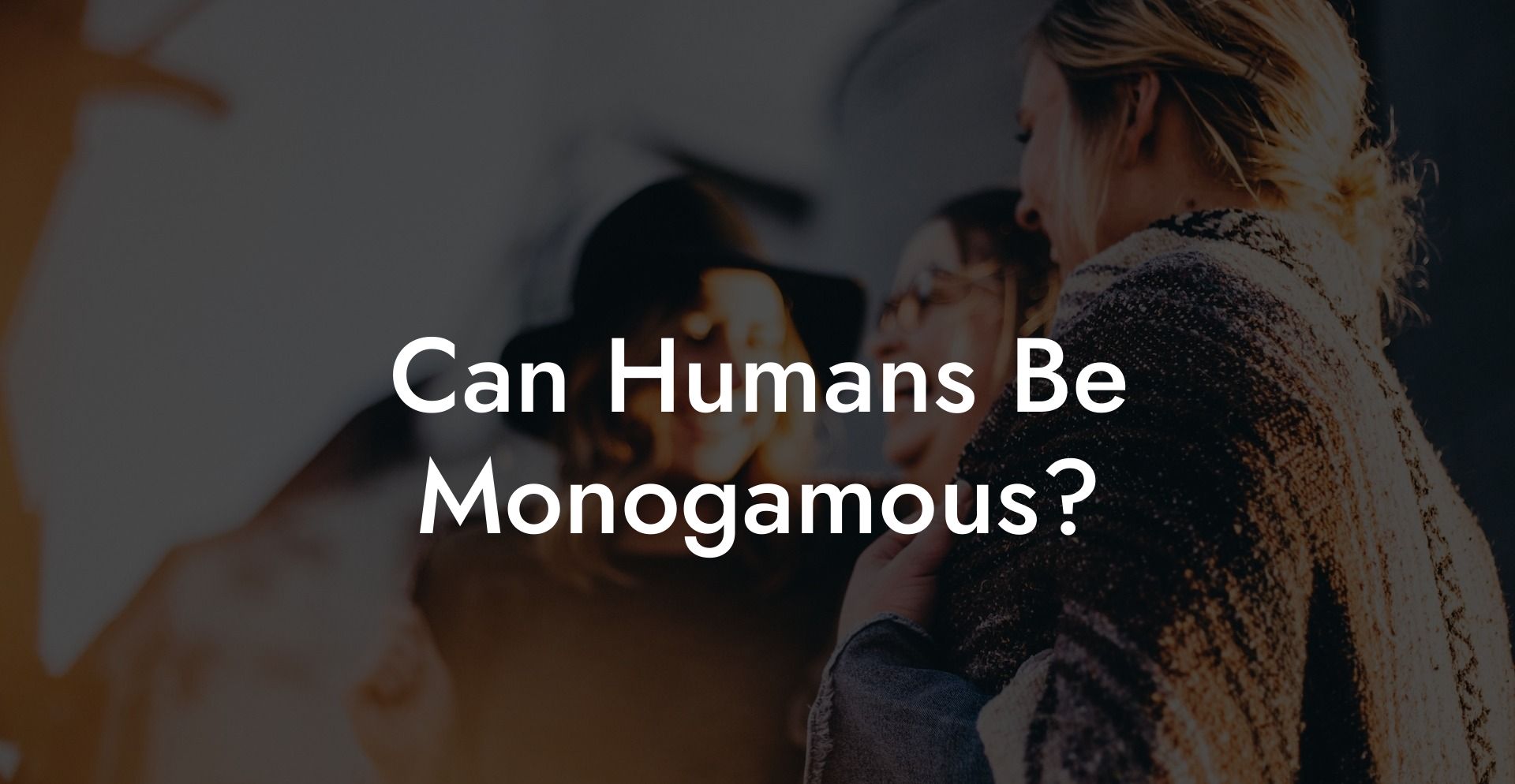In today's world, where freedom of choice and expression is highly valued, the topic of monogamy has long been debated. Is it an outdated concept belonging only to fairytales and romantic novels, or can the human race truly achieve monogamous relationships? Here at The Monogamy Experiment, we always strive to bring forth the hard truths, dispel the myths, and provide comprehensive answers to life's burning questions. In this article, we will examine the complexities of human monogamy in terms of our biology, psychology, and societal norms. So read on as we embark upon this quest for understanding and remember to share your thoughts with others while exploring our repository of guides on The Monogamy Experiment.
Can Humans Be Monogamous Table of Contents
To understand the possibility of monogamy in humans, we must first delve into our primal history and analyze the reproductive and survival needs that have shaped our species. As mammals, humans possess the innate drive to reproduce and ensure our genes are passed on into future generations. In this context, non-monogamous behavior may have been advantageous for early humans - males could increase their chances of successful offspring, while females could access a wider pool of potential protectors and providers.
However, numerous factors have influenced the shift toward monogamy throughout human history. These include the development of social structures, property rights, religious beliefs, and the shared responsibility of raising children. Consequently, marriage and monogamous relationships have evolved as both a social and a psychological construct, with many arguing that the core value of monogamy is based upon the deep emotional bond formed between two people.
Despite our historical context, it is important to recognize that human monogamy is not a one-size-fits-all concept. Cultural variations and personal preferences mean that there is a wide spectrum of relationships, encompassing polygyny (one man, multiple women), polyandry (one woman, multiple men), and polyamory (consensual non-monogamy). What works for one individual or couple may not be suitable for another, and it is crucial to be open-minded and respectful when approaching these conversations.
Can Humans Be Monogamous Example
Meet Sarah and John, a young couple who have been dating for three years. They decide to explore the concept of monogamy and assess whether a monogamous relationship would suit their personalities and desires. After undertaking research and discussing their feelings, Sarah, who has a set career path and craves emotional stability, leans more toward monogamy. John, a free-spirited artist who values independence, may lean towards a polyamorous relationship.
Throughout their journey, Sarah and John learn the importance of communication, transparency, and compromise in shaping a relationship that works for them. Whether they ultimately choose monogamy or some other form of partnership, the key to their happiness is open dialogue, understanding, and mutual respect.
In conclusion, the question of whether humans can be monogamous boils down to individual choice, circumstances, and compatibility. It is essential to remember that relationships are personal and fluid, and judgments of others can only hinder progress in understanding the human experience. As you continue exploring The Monogamy Experiment, we encourage you to keep an open mind, respect the choices of others, and contribute to the conversation by sharing this post and delving into our other comprehensive guides on monogamy, non-monogamy, and polyamory. Here's to finding love in all its shapes and forms!













